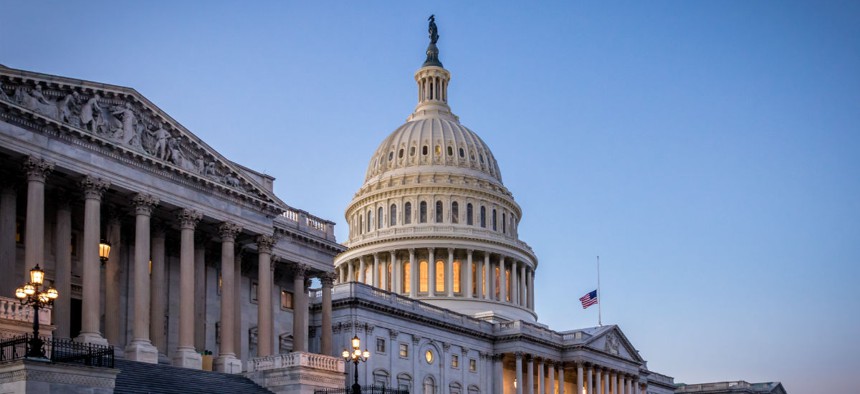
Senate Skips Vote on Repealing Sequestration
Measure would have rolled back both defense and non-defense spending caps.
The Senate on Thursday failed to come to an agreement to vote on an amendment to roll back sequestration, despite pleas from Republicans to undo the spending caps that inhibit defense and non-defense spending.
Republicans pointed the finger at their Democratic colleagues for preventing the amendment from coming to a vote. Democrats have for years fought against the limits on spending created by the 2011 Budget Control Act, but declined the opportunity to repeal that law as an a part of the 2018 annual defense authorization bill. The amendment by Sen. Tom Cotton, R-Ark., would have provided a funding boost for both defense and non-defense parts of discretionary spending. Congress reached two separate agreements to partially raise the caps in fiscal years 2014 through 2017, but their full weight is scheduled to kick back in after the expiration of the stopgap measure Trump signed into law last week.
Republicans, led by Senate Armed Services Committee Chairman John McCain, R-Ariz., have for years decried the impact the BCA has had on the Defense Department. He and his colleagues have in recent weeks cited sequestration for a recent slew of accidents during military training. By investing more in equipment and other modernization efforts, they said, the failures that led to an array of non-combat casualties could have been avoided.
“The men and women who wear the uniform of our country are the best of our country,” McCain said on the Senate floor Thursday. “They do everything we ask of them with great courage. It’s time for this body to show a similar level of courage and end the threat that sequestration poses to their mission and their lives.”
In a recent letter to McCain and Sen. Jack Reed, D-R.I., explaining the impact of a continuing resolution on military readiness, Defense Secretary Jim Mattis said the BCA caps pose a much greater threat. Without relief, he wrote, the country’s advantages over its adversaries would erode.
McCain tweeted his disappointment that the authorization bill would not address the funding caps, but said it was not worth holding up the entire process.
While I'm disappointed the Senate could not take up a vote to repeal sequestration, I'm proud we're moving toward final passage #FY18NDAA
— John McCain (@SenJohnMcCain) September 14, 2017
Democrats have generally focused on the non-defense side of the spending cuts, demanding any increase to defense funding be matched with an equal increase to domestic priorities. The party has used the BCA as a mechanism to ensure parity in spending on the two sides of the spending coin. Sen. Patrick Leahy, D-Vt., the top Democrat on the Senate Appropriations Committee, called for a bipartisan agreement to raise the caps for both defense and domestic spending.
“We need a bipartisan budget deal based on parity, like the ones we had in 2013 and in 2015, that raises the post-sequester budget caps for both defense and non-defense programs to address the needs and the real priorities of our nation,” Leahy said on Thursday.
The House wrapped up its appropriations work on Thursday, but without a budget deal the defense side of its spending bills would trigger a sequester of about $72 billion. That would result in a removal of 13 percent of monies in all defense accounts.







